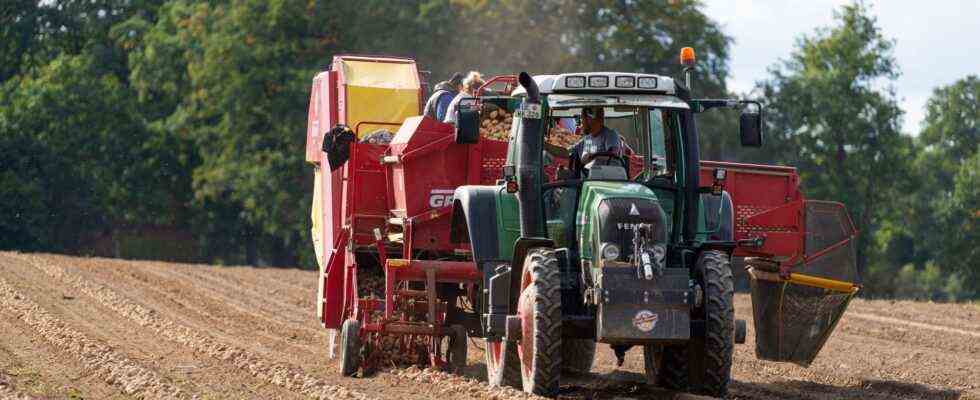Status: 11/23/2021 5:50 p.m.
The EU Parliament put an end to a long-standing dispute and passed the agricultural reform. The allocation of a quarter of the money will in future be linked to environmental requirements. That’s not enough for critics.
Three and a half years of dispute – now the EU agricultural reform has cleared its last hurdle. The European Parliament approved the compromise with the 27 member states and the EU Commission with a large majority: 452 members voted in favor, 178 against with 53 abstentions. “That is the best compromise that we could reach,” says EU Agriculture Commissioner Janusz Wojciechowski. “It is a good and balanced result that allows the common agricultural policy to ensure the transition to a more sustainable agriculture.”
25 percent of the money goes into ecological measures
Most of the direct payments to farmers continue to be based on the size of the farms. But a quarter of this funding will be reserved for environmental programs in the future. Christian Democrat Peter Jahr points to this: “25 percent of the direct payments are used for ecological measures. This is unique, we’ve never had that before. Of course it can be more, it can always be more. But we should deal with this 25 percent first , connected with the freedoms of the member states. ”
For example, they have to determine what the planned organic rules will look like – in other words, what farmers have to do in order to benefit from them. At least ten percent of the direct payments should benefit smaller businesses. There are no plans to cap payments to large farmers. In addition to direct payments, the EU gives money for rural development – of which at least 35 percent must in future be used for environmental or climate protection measures.
EPP parliamentary group leader Manfred Weber emphasizes that farmers have a great responsibility, but that they do not have to be instructed. You would know what to do. “They want to be convinced and not to be declared guilty,” said Weber.
Social Democrats criticize “watering can principle”
For the first time, it is to be checked that EU labor law is being complied with on the farms. Foreign seasonal workers do not initially benefit from this. The SPD MEP Maria Noichl welcomes this new social dimension in EU agricultural policy. Otherwise she finds nothing good in this package: “The worst point in this whole package solution is that 75 percent of the money is allocated purely according to area. This is tax money that the people in the member countries earn, and we do not re-allocate this money Performance or precisely, but with the watering can. It hurts so much because the funds are missing elsewhere. “
Greens against reform package
The Greens have also voted against the reform package. Your agricultural expert Martin Häusling speaks of a black day for farmers in Europe. Häusling criticizes that the EU wants to become climate neutral, that it wants to drastically restrict the use of pesticides and fertilizers and preserve biodiversity and landscapes – these goals are not anchored in the agricultural reform. “None of this can be found in the common agricultural policy with a word. Perhaps at some point, but not at the moment. And that’s why: If there is no new agricultural policy, the Green Deal will also fail.”
42 billion euros for Germany
The common agricultural policy is the second largest item in the EU budget at 387 billion euros. Germany is entitled to around 42 billion euros of this. Due to the lengthy negotiations, the reform will only apply after a transition phase from the year after next. By the end of this year, each member state should submit a strategic plan to the EU Commission on how it intends to achieve the respective goals.
EU Parliament approves agrarian reform worth billions with a large majority
Jakob Mayr, ARD Brussels, 11/23/2021 5:37 p.m.

